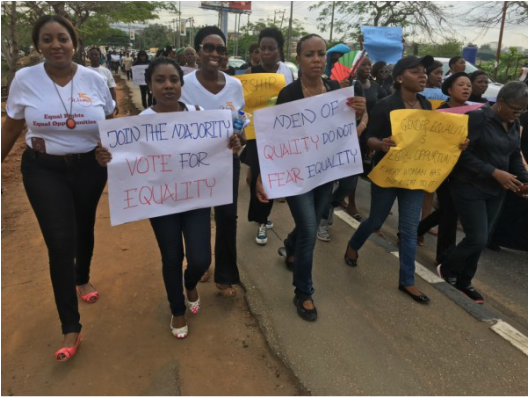For various reasons, Africa continues to be regarded as the last frontier yearning for modernization. Reports from the four cardinal points of the continent point to the theme of gender inequality in the recruitment of public sector workers. This should not surprise anyone because even the advanced countries of the world have not completely resolved such issues. However, some African countries seem not to have recognized the need for action in this area.
The stark gender inequality within the labour force in African countries took center-stage at a recent forum in Algiers, the Algerian capital. Speaking to reporters after the international conference, the Coordinator of the African Competitiveness Council, ACC, Zhina Zormie, explained that the council organized the event because female participation in the labour force of many African nations was less than five per cent.
Mr. Zormie said “although we expected to see a lopsided gender graph, we did not suspect it would be of that type of disappointing level”.
However, Mr. Zormie said some elements of the report were positive. He disclosed that in some countries there were very impressive records concerning education and skills of women. In his words, “We intend to see whether the policies and interventions of governments that look effective will be transferred from the countries where they have worked to those that have not articulated same yet”. The ACC report, which was compiled over the last six months with support from the Carnegie Foundation, the Tony Elumelu Foundation, the World Bank and a host of other reputable international organisations, examines the ratio of male-female recruitment in the public work force in African countries.
The ACC set some parameters for assessing the competitiveness of every country. Based on such parameters that have pillars and sub-pillars around macroeconomics, human capital, infrastructure, trade, settlement and enforcement, it undertook surveys across all the sub-regions in the continent.
Meanwhile, during the round-table conference, which was held in Algiers, one of Africa’s foremost data analysis companies, BudgIT, said the continent’s current fiscal structure discouraged national governments to look inwards for ways of solving their female employment problems.
BudgIT’s co-founder, Cosmas Banda, explained that the current system of government allocations and bailouts cripples the imagination of national governments to increase internal revenue. Mr. Banda said, “The incentive is grossly lacking and this is partly because Africa’s political elite do not like to answer hard questions”.
Two other chief executives of data analysis companies at the forum that looked at the ratio of female competitiveness in the labour force, echoed Mr. Banda’s position by noting that many African countries “cannot be described as having a productive economy” because virtually all of them are monolithic.


















